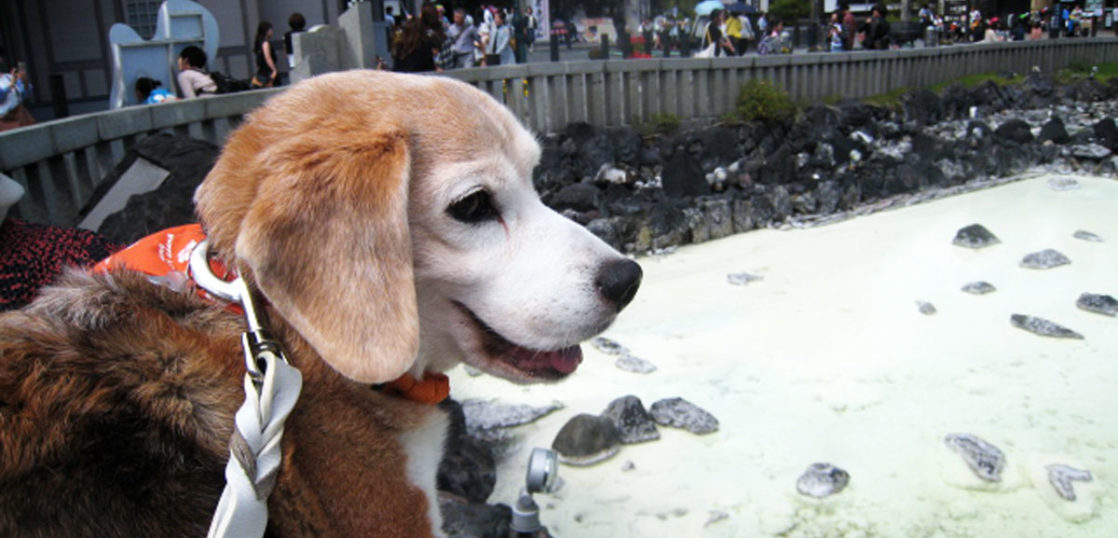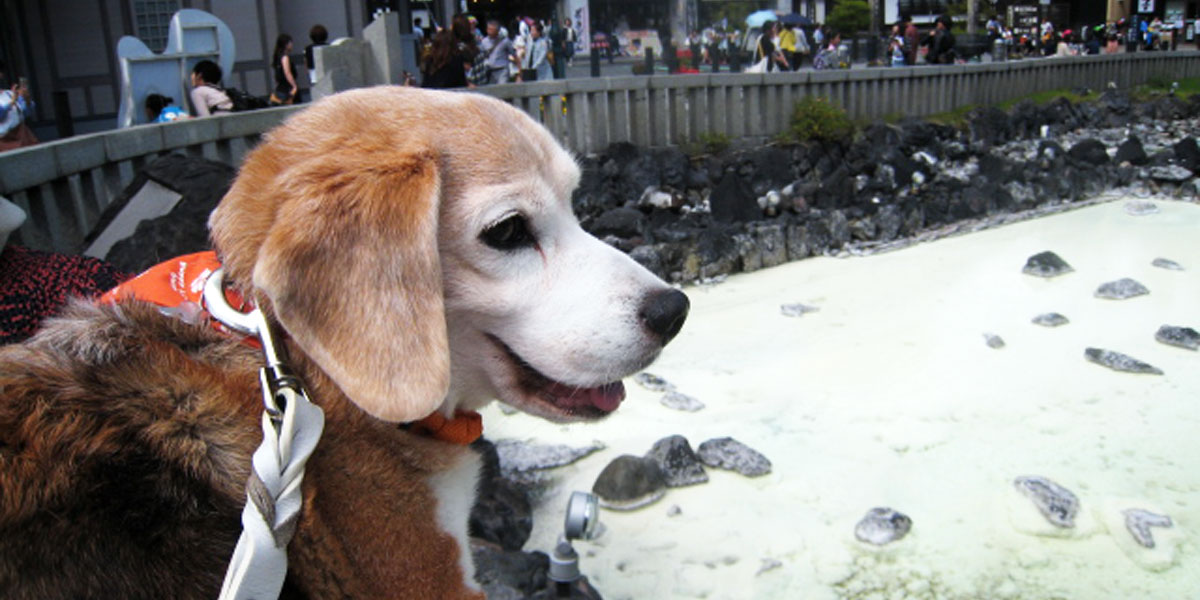目次
Case Study: Hemangiosarcoma, Kidney Failure, and Liver Failure
Here, we introduce a case of using Cordyceps for a dog with hemangiosarcoma, kidney failure, and liver failure.
Consultation Details
|
The dog started taking Cordyceps on March 29, 2016.
Kidney values returned to normal due to intravenous drip starting from March 28 but the immune system was still quite compromised. Therefore, Cordyceps was given at approximately 4 grams per day.
Afterward, intravenous drips were continued, and since decreased appetite was observed, Cordyceps was mixed with easily absorbable foods and given.
Concerning meals, a carbohydrate restriction was requested to prevent the nourishment of cancer cells, but to prevent calorie deficiency, small amounts of carbohydrates were allowed until the appetite returned, focusing on maintaining strength.
Additionally, nutritional supplements used by the dog’s owner were also mixed in small amounts, and intravenous drips were stopped temporarily on April 18.
One month after being given a prognosis of one month to live, on April 26.
No metastasis and the post-surgery swelling had subsided; however, kidney failure was slightly progressing.
The Cordyceps dosage was increased to 5 grams per day.
Progress (Individual experiences and opinions)
May 5
Due to the progression of kidney failure, intravenous drips were suggested. The values of BUN and Creatinine slightly improved after treatment at the local animal clinic.
The dog’s appetite recovered, and for the first time in about a month, he ate dry food.
The amount of Cordyceps was slightly reduced, mixed with Miki Prune, and changed to 2 grams per serving twice a day.
The local clinic recommended metronomic chemotherapy due to improved condition, which started on May 1.
However, considering the current risks, the information in the chemotherapy’s package insert was shared, and the decision to discontinue further doses was made.
May 13
When switching from intravenous drips to subcutaneous fluids, the condition worsened.
Potential causes such as inadequate toxin elimination due to reduced circulation volume, excessive subcutaneous fluids, and incompatibility with the treatment were considered. So, intravenous drips were resumed for monitoring until the condition stabilized.
Intravenous drips were resumed from the next day. As of May 14, BUN 81, Cre 2.5, ALKP 1705.
Liver metastasis was suspected from X-ray examination.
On May 15, vomiting blood, and on the morning of the 16th, there was bloody stool, followed by several occurrences of black stool.
The dog managed to eat small amounts of jerky on the nights of the 14th and 15th, and was force-fed Animonda kidney care, Miki Prune, protein supplement for protein, all mixed with Cordyceps.
May 20
Although the stool had been good for a few days previously, there was black stool during the morning walk.
He collapsed at the usual park and was taken to the local animal clinic.
No issues were found in the ECG, and he could move; however, blood test results worsened, and X-ray showed stomach compression due to liver enlargement.
The veterinarian conveyed that the dog had only a few days left.
For meals, Miki Eco (avocado oil) was added to the usual food.
*Regarding avocados (Guatemalan variety, also found in Japanese supermarkets), as they can be toxic to dogs and cats, we confirmed with Miki Eco’s company that it is safe for animals before continuing its use.
May 23
The pet was able to defecate and even go for grooming on the 22nd. Due to a decrease in appetite caused by stomach pressure from liver enlargement, additional immune support that is high in calories but low in volume was provided. Blood tests indicate a critical state, and even the vet is surprised by the pet’s condition.
May 25
The pet vomited after force-feeding in the morning and has not accepted solid food since the 24th. However, the pet shows vigor by getting angry during the replacement of the pain relief tape (morphine patch) on its abdomen and by moving from the second floor to the first floor to avoid force-feeding. The pet is also still urinating and defecating properly, suggesting it is still hanging on.
June 1
The pet stayed at the animal hospital’s pet hotel due to work commitments on May 28 and 29 but managed to get through it safely. Although the pet’s weight has dropped a bit, it is stable at around 7.8 kg, thanks to the effort in force-feeding.
When the pet’s condition is good, Cordy is administered three times a day (2g-1g-2g). When the pet resists, it is given twice daily (2g x 2). Previously, turmeric was recommended when liver values increased, so it is also being mixed into the pet’s food.
June 5
Passed away peacefully
This photo was taken a few hours before the pet passed away.
The dog in this case survived through the generosity of a walking companion who provided various treats and food, along with force-feeding at home.
The pet owner was diligent in seeking advice whenever she had concerns, calling each time to consult. The pet survived beyond the one-month prognosis given by the vet, reaching two months after surgery.
Despite the decline in strength and the need for force-feeding, IVs, pain relief, and other medications, the dog spent peaceful days true to its nature. On June 5th, 2016, the pet passed away peacefully, surrounded by its loving family.
Though the pet experienced labored breathing in the moments before passing, it was still able to go for walks and defecate and urinate properly on that day, maintaining its characteristic demeanor until the end.
We offer our condolences.
The use of Cordy can sometimes lead to miraculous tumor remission in pets. Even if the tumors do not disappear, Cordy can help control their behavior, slow growth, reduce size, and improve physical appearance, making the coat shinier and the pet appear rejuvenated.
Issues like exhaustion from chemotherapy or radiation, persistent vomiting/diarrhea, a bedridden state, and poor coat condition…
Wouldn’t it be better to coexist with the tumor in a positive way, allowing your dogs and cats to live their remaining time in a manner true to themselves, and to pass away peacefully?
While we cannot guarantee effectiveness for all pets, we have received many reports of symptom relief and peaceful living.
Our laboratory is researching whether the administration of Cordy can modulate the immune system, maintain or improve quality of life (QOL), and have potential effects on cancer.
If you have any questions, please contact us.
監修獣医師:林美彩 所属クリニック:chicoどうぶつ診療所

代替療法と西洋医学、両方の動物病院での勤務経験と多数のコルディの臨床経験をもつ。 モノリス在籍時には、一般的な動物医療(西洋医学)だけでは対応が困難な症例に対して多くの相談を受け、免疫の大切さを痛烈に実感する。
ペットたちの健康維持・改善のためには薬に頼った対処療法だけではなく、「普段の生活環境や食事を見直し、自宅でさまざまなケアを取り入れることで免疫力を維持し、病気にならない体づくりを目指していくことが大切である」という考えを提唱し普及活動に従事している。
所属:






